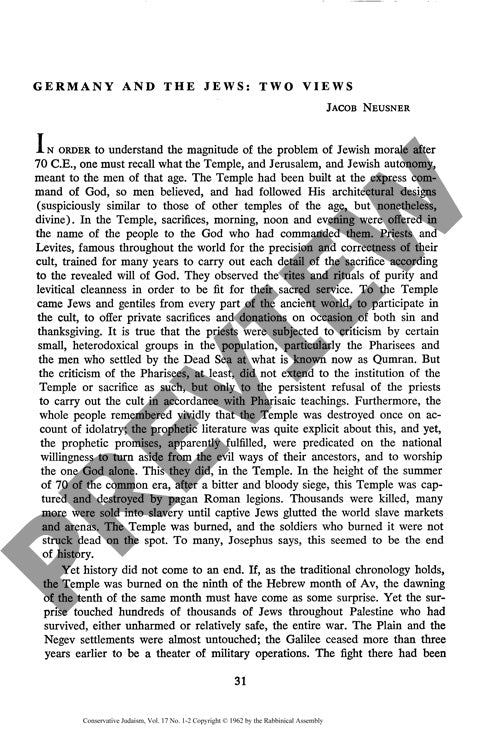Germany and the Jews Two Views
Couldn't load pickup availability
How should Jews respond to Germans in the wake of the Holocaust? Ancient rabbinic wisdom offers a surprising framework through the teachings of Yohanan ben Zakkai, who faced his own catastrophic moment when the Temple was destroyed in 70 C.E. Through comparative historical analysis, ben Zakkai's response emerges as radically different from his contemporaries - emphasizing practical reconstruction over eschatological hope, promoting acts of loving-kindness (hesed) to replace Temple sacrifice, and believing in humanity's capacity for moral transformation through repentance and compassion. This paradigm suggests possibilities for transcending blanket hatred toward Germans, particularly those born after 1945 or who opposed Nazism. However, critics forcefully challenge this parallel, arguing that viewing the Holocaust through traditional religious frameworks of divine punishment is theologically unconscionable, that such interpretations historically enabled passive victimhood rather than resistance, and that forgiveness remains inappropriate without genuine German contrition. This fundamental tension between traditional religious responses to persecution and modern imperatives for Jewish survival and dignity crystallizes core dilemmas in post-Holocaust Jewish-German relations.

More Information
-
Physical Description
-
Publication Information
Published 1962
ISBN
-
Publication Credits
Jacob Neusner

